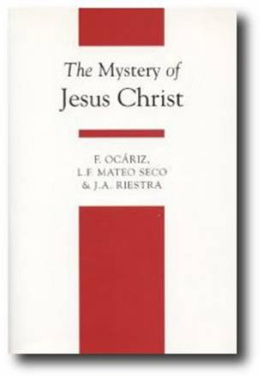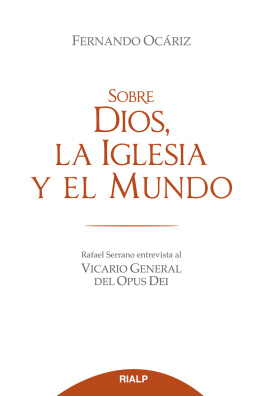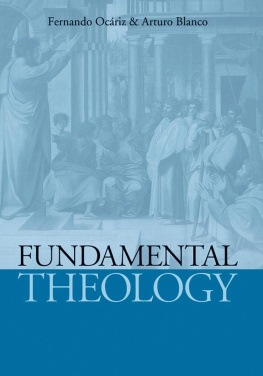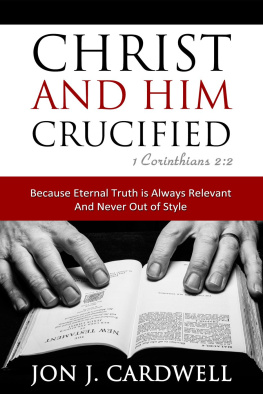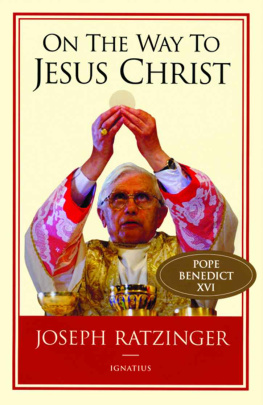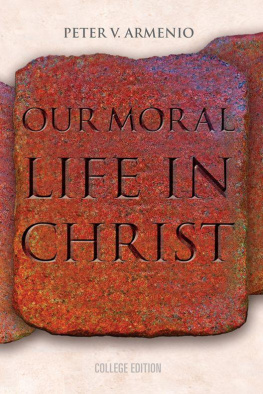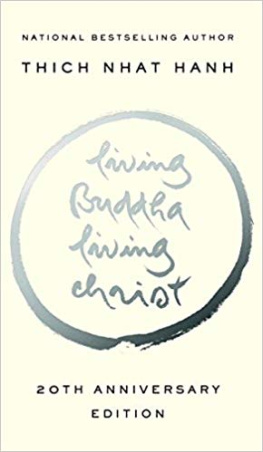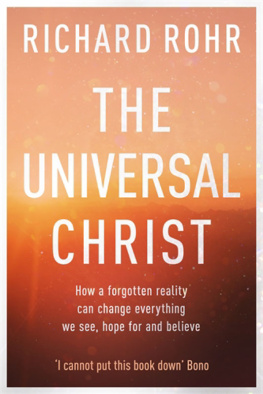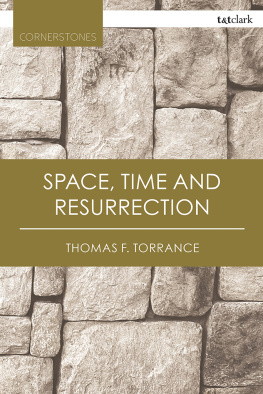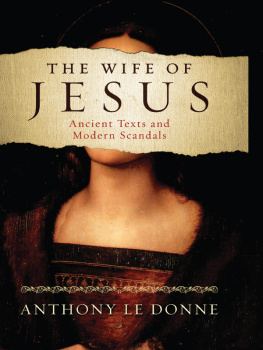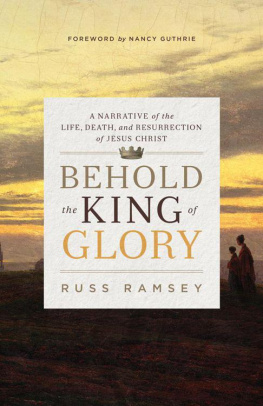Fernando Ocáriz - The Mystery of Jesus Christ
Here you can read online Fernando Ocáriz - The Mystery of Jesus Christ full text of the book (entire story) in english for free. Download pdf and epub, get meaning, cover and reviews about this ebook. year: 1998, publisher: Four Courts Press, genre: Religion. Description of the work, (preface) as well as reviews are available. Best literature library LitArk.com created for fans of good reading and offers a wide selection of genres:
Romance novel
Science fiction
Adventure
Detective
Science
History
Home and family
Prose
Art
Politics
Computer
Non-fiction
Religion
Business
Children
Humor
Choose a favorite category and find really read worthwhile books. Enjoy immersion in the world of imagination, feel the emotions of the characters or learn something new for yourself, make an fascinating discovery.
- Book:The Mystery of Jesus Christ
- Author:
- Publisher:Four Courts Press
- Genre:
- Year:1998
- Rating:4 / 5
- Favourites:Add to favourites
- Your mark:
- 80
- 1
- 2
- 3
- 4
- 5
The Mystery of Jesus Christ: summary, description and annotation
We offer to read an annotation, description, summary or preface (depends on what the author of the book "The Mystery of Jesus Christ" wrote himself). If you haven't found the necessary information about the book — write in the comments, we will try to find it.
The Mystery of Jesus Christ — read online for free the complete book (whole text) full work
Below is the text of the book, divided by pages. System saving the place of the last page read, allows you to conveniently read the book "The Mystery of Jesus Christ" online for free, without having to search again every time where you left off. Put a bookmark, and you can go to the page where you finished reading at any time.
Font size:
Interval:
Bookmark:
The Mystery of
Jesus Christ
A Christology and Soteriology Textbook

FOUR COURTS PRESS
This book was typeset by Gilbert Gough Typesetting in 11 on 13 Ehrhardt, and is published by FOUR COURTS PRESS LTD Kill Lane, Blackrock, Co. Dublin, Ireland, and in North America by FOUR COURTS PRESS LTD c/o International Specialized Book Services, 5804 NE Hassalo Street, Portland, OR 97213.
This translation is by Michael Adams and James Gavigan. Original title: El Misterio de Jesucristo F. Ocariz, L.F. Mateo Seco and J.A. Riestra 1991, Ediciones Universidad de Navarra, S.A., Plaza de los Sauces, 1 y 2Baranain (Navarra), Espana.
English edition 1994: Four Courts Press
ISBN 1-85182-127-9
A catalogue record for this book is available from the British Library.
All rights reserved. Without limiting the right under copyright reserved above, no part of this publication may be reproduced, stored in or introduced into a retrieval system, or transmitted, in any form or by any means (electronic, mechanical, photocopying, recording or otherwise), without the prior written permission of both the copyright owners and the above publisher of this book.
Printed in Ireland by Betaprint, Dublin
Contents
CHAPTER ONE
1 a) b) c) d) a) b) c) d) a) b) c)CHAPTER TWO
a) b) c) d) e) f) a) b) c) d) e) f) a) b) c) d)CHAPTER THREE
a) b) c) a) b) c) d) 3 a) b) c) 4 a) b) c) a) b) c) a) b) c)CHAPTER FOUR
a) b) c) a) b) i) ii) iii) iv) v) c) 4 a) b) c) d) e) a) b) c) d) e) f) g)CHAPTER FIVE
a) b) c) i) ii) iii) iv) a) b) a) b) c) a) i) ii) iii) b) c) d)CHAPTER SIX
a) b) c) d) e) f) g) a) i) ii) iii) iv) v) vi) b) c) a) b)Preface
This manual of Christology developed in the normal way for a book of its type: as teachers we felt the need for it, and our teaching helped us to produce it. The fact that this book has three authors derives from a desire to avoid too narrow a focus; it draws on a varied range of teaching experience and yet, we trust, has the necessary consistency and coherence.
This textbook is designed for seminarians and theology students who are meeting this subject for the first time. Dealing with what are traditionally called De Verbo Incarnato and Soteriology, it tries to cover all the main themes in a systematic way, and avoid less important ones (it is not always easy to choose what to include and what to omit), and it has not tried to strike a purely quantitative balance in the amount of space devoted to each theme.
However, although this is a textbook, our purpose is not merely academic; we particularly want the book to help the reader attain what St Paul says in his Letter to the Christians of Ephesus"the breadth and length and height and depth, and to know the love of Christ which surpasses knowledge, that you may be filled with all the fullness of God" (Eph 3:18-19). This calls for a contemplative approach to teaching and study contemplation of the mystery of Christ because "the truth of the Lord is studied with the head bowed; it is taught and preached in expansion of the soul who believes it, who loves it and who lives by it."
It is not enough, then, (even in theology) to study Christ; in the words of Blessed Josemaria Escriva, "we must seek Christ in the word and in the bread, in the Eucharist and in prayer. And we must treat him as a friend, as the real, living person he is for he is risen. Christ, we read in the Epistle to the Hebrews, 'holds his priesthood permanently, because he continues forever. Consequently he is able for all time to save those who draw near to God, since he always lives to make intercession for them' (Heb 7:24-25). Christ, the risen Christ, is our companion and friend. He is a companion whom we can see only in the shadows but the fact that he is really there fills our whole life and makes us yearn to be with him forever. 'The Spirit and the Bride say, "Come." And let him who hears say, "Come." And let him who is thirsty come, let him who desires take the water of life without price.... He who testifies to these things says, 'Surely I am coming soon. Amen. Come, Lord Jesus' (Rev 22:17-20)."
Introduction
In recent years, Jesus Christ, his Person and his mission (the salvation of mankind), has attracted ever more attention, both at the level of personal piety and joyful acceptance of faith and in the field of theological study. All one has to do is to look at the bibliography to see the wealth of material on Christology, the richness and complexity of the subject and the diversity (and divergence) of approaches. Therefore, before entering into our study of Christology proper, it will be helpful to look at some preliminary questions, especially those to do with method.
I. CHRIST, THE OBJECT OF CHRISTOLOGY
Jesus Christ is the central object of the Church's faith. He is also the object of Christology, which, as the word implies, is a discourse or treatise on Christ. It is one of the key areas of theology and constitutes the study, in the light of faith, of what that faith teaches regarding the mystery of Christ and his work of redemption.In a certain way, the profession of faith Jesus is the Christ is a resume of the Christian faith; and Christology is nothing other than the theological development of the content of that profession. It involves, obviously, not just speculation on something in which the student is not involved, not committed to; rather, it means exercising reason enlightened by faith in order to discover Christ and repeat the very words the first disciples used when they told each other of their joy at having found him: "Come and see" (Jn 1:39); "We have found the Messiah" (Jn 1:41).Christianity is the good news of Christ; in fact, we can say that Christianity is Christ. As the Catechism of the Catholic Church puts it, "the transmission of the Christian faith consists primarily in proclaiming Jesus Christ in order to lead others to faith in him." What identifies the Christian is nothing other than identification with Christ. From this it follows that the Church's mission is simply that of preaching the truth about Christ and changing people into Christ. What the Encylical Redemptor hominis says about the relationship between the Church and the mystery of Christ can in a sense be applied to the theologian: "The Church lives his mystery, draws unwearyingly from it and continually seeks ways of bringing this mystery of her Master and Lord to humanityto the peoples, the nations, the succeeding generations, and every individual human beingas if she were ever repeating, as the Apostle did: 'For I decided to know nothing among you except Jesus Christ and him crucified' (1 Cor 2:2)".In this respect, it is useful to emphasise the radical newness of the Christian religion in the context of the history of religions. Christianity is, first and foremost, following a man (Jesus), whom one confesses to be the Messiah ( the Christ ) expected by the Jewish peoplea man whom one worships, loves and listens to with the same commitment that one has to God the Creator, because one firmly believes that that man, a son of Adam, is also the Only-begotten of the Father, God from God, and Redeemer and Saviour of mankind.From this perspective, it must be said "that Christology lies at the heart of all Catholic dogma. Catholic dogma is centred on Christ. The mystery of God become man is the 'Holyof Holies' of the Church. It follows automatically that, overand aboveany other consideration, Who is Jesus Christ? is the key question in all Christian belief and conduct. His Person is the basis of the authority with which he addresses his appeal to us and of the commitment his teaching elicits: everything is grounded on who this Person is who proclaims it. A good example of this is the Sermon on the Mount: "You have heard that it was said to the men of old.... But I say to you" (cf. Mt 5:21). The question, then, of who and what Jesus Christ is is the key question which neither theologian nor believer can avoid. Therefore, the answer to this question must be clear and unambiguous.The Church provides such an answer in the Symbols, in its Creeds. The Creed of Nicea-Constantinople is a very good example of the clarity of this profession of faith, and it echoes faithfully what we find in the New Testament: "You are the Christ, the Son of the living God", Peter solemnly and significantly confesses at Caesarea Philippi (Mt 16:16).It is Christ himself that man should search for, and not some "image" of him, more or less beautiful, more or less touching. As at Caesarea Philippi, Jesus' question continues to be put to every man, every woman, and put also to that branch of knowledge which wishes to be called "Christology": "But who do you say that I am?" (Mt 16:15). The salvation-bearing reply (the salutaris confessio) to this question comes to us from "on high" (cf. Mt 16:17), for it is a response of faith, which is beyond man's natural powers; faith is a gift while being at the same time in conformity with reason, a reasonable service. Thus, "it is that we receive the belief in Jesus from the Church, and not from philosophical and textual criticism." Consequently, " whoever seeks Christ without the Church, putting his trust in his own insight and what goes by the name of criticism, deprives himself of all possibility of finding the living Christ. Only the living comprehends and affirms the living." In fact, "without the living Church, the Gospels and, indeed, the entire New Testament would be simply a more or less stirring literary composition, raised, it is true, high above all other religious literature, even the Old Testament, but all the same just a body of writing robbed of the breath of life, the fresh inspiration of flesh-and-blood reality."Next page
Font size:
Interval:
Bookmark:
Similar books «The Mystery of Jesus Christ»
Look at similar books to The Mystery of Jesus Christ. We have selected literature similar in name and meaning in the hope of providing readers with more options to find new, interesting, not yet read works.
Discussion, reviews of the book The Mystery of Jesus Christ and just readers' own opinions. Leave your comments, write what you think about the work, its meaning or the main characters. Specify what exactly you liked and what you didn't like, and why you think so.

